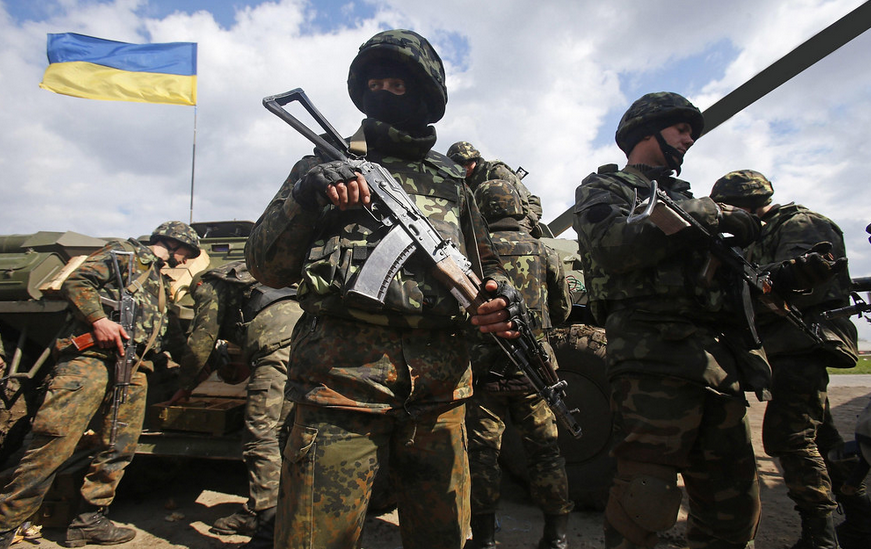
First Anniversary of Ukraine war is a grim reminder to “stop dependence on unstable and war-driven fossil fuels”
It is a gruesome milestone. A year after Russia’s brutal and bloody invasion of Ukraine, the ripples of war have spread across the globe. Tens of thousands of civilians have been killed, along with over a hundred thousand Ukrainian and Russian soldiers.

C: Ukrainian Ministry of Defence
It is a gruesome milestone. A year after Russia’s brutal and bloody invasion of Ukraine, the ripples of war have spread across the globe. Tens of thousands of civilians have been killed, along with over a hundred thousand Ukrainian and Russian soldiers.
Millions of Ukrainians were displaced from their homes and homeland. Meanwhile, one hundred million people worldwide have been forced into extreme poverty by spiralling energy and food costs.
The invasion was fundamentally fossil-fueled, although Putin predictably blamed the U.S., Europe and NATO for the war. Putin could only invade sitting on a massive stockpile of petrodollars to fund his war chest.
Revenues from oil and gas projects backed by European and U.S. companies financed Vladimir Putin’s regime to nearly USD 100 billion since 2014. In a briefing published last March, OCI and other groups highlighted how European and U.S.-based corporations have “spearheaded large oil and gas projects that filled Putin’s coffers.”
Eight companies — BP, Shell, Wintershall Dea, ExxonMobil, TotalEnergies, Equinor, OMV, and Trafigura — have been responsible for over USD 95 billion to the Russian government via their stakes in Russian oil and gas projects and companies since 2014. BP alone was responsible for 80% of this total.
The war has been highly lucrative for the fossil fuel industry as it has raked in vast, eye-watering profits. An analysis by Global Witness assessed the 2022 annual profits of five of the largest oil and gas companies: Chevron, ExxonMobil, Shell, BP and TotalEnergies. Together, “their total profits add up to $195 billion in 2022, nearly 120% more than the previous year, and the highest level in the industry’s history,” said Global Witness.
Such profiteering has been widely condemned. In June last year, UN Secretary-General Antonio Guterres said the oil companies “have humanity by the throat”, in what was described as a blistering attack on the industry. Last October, US President Joe Biden accused the sector of “war profiteering”, adding: “Their profits are a windfall of war, a windfall for the brutal conflict that’s ravaging Ukraine and hurting tens of millions of people around the globe.”
The US LNG industry has also been quick to exploit the war, looking to ramp up exports and locking in European consumers to decades of gas consumption. In the first eleven months of last year, U.S. LNG exporters boosted shipments to Europe by more than 137%, according to an analysis by Reuters.
However, Europe’s LNG demand drove global spot prices to all-time highs. Such has been the growth and profiteering that the US is set to become the world’s largest LNG exporter this year. Cheniere, the largest producer of LNG in the US, saw its cash flow increase from $1.75 billion in 2021 to an estimated $6.53bn last year. The volatile high LNG prices and supply disruptions have “earned LNG a reputation as an expensive and unreliable fuel source, undermining the prospects for demand growth in key markets,” according to one analysis.
As oil and gas companies revel in their excess profits, hundreds of millions have suffered the consequences of rising energy and food costs. According to the UN, the cost of food rose by 50% last year.
But that is not all. The devastating effect on the environment of Ukraine has also been labeled the “silent victim” in this war. Some estimates put the ecological damage around USD 50 billion. An estimated two million hectares of forest have been destroyed. A hundred and sixty nature reserves, 16 wetlands and two biospheres are threatened by destruction. And an unknown number of birds and animals have been killed too. There are growing calls for the Russian government to be tried for crimes of ecocide.
There are many lessons from the war. But one is very simple. As my colleague, Lorne Stockman, Research Co-Director at OCI, says: “Russia’s invasion of Ukraine one year ago is a wake-up call to stop dependence on unstable and war-driven fossil fuels, and instead transition to reliable renewable energy. Oil companies are fueling and profiting from this crisis while the rest of the world has suffered dire consequences.”
Stockman adds: “The world needs a managed phase-out of fossil fuels and a just transition towards renewable energy before it’s too late.”
